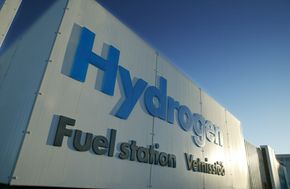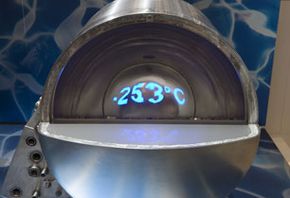Unless you happen to live in California, which has taken some initiative in building the infrastructure to support hydrogen fueling, chances are you’ve never seen the option of filling your car up with hydrogen last time you were at the gas station.
On the other side of the coin, if you’ve been to a car dealership recently, chances are you’ve seen vehicles with ordinary gasoline engines, diesels and probably even a few hybrids. But hydrogen-powered cars? Not likely.
And this one of the biggest hurdles to implementing a new energy technology: Energy producers and distributors need the infrastructure to supply demand for their fuel. But the demand cannot really exist without the infrastructure to support it. It’s like the “chicken and the egg” problem, but the difference is the solution is probably worth billions.
Another significant drawback of hydrogen is that, although it’s abundant, hydrogen fuel can be difficult and costly to store. At normal room temperatures, hydrogen exists as a gas. To get hydrogen into a liquid state that can be stored, transferred and eventually used as fuel requires a temperature of -423 degrees Fahrenheit (-253 degrees Celsius). Keeping hydrogen fuel that cold requires specialized containers such as the one in the photo to the left.
Finally, hydrogen-powered cars are currently too expensive for the average consumer to purchase. Last year, Toyota announced that by 2015 the car manufacturer intended to produce a hydrogen-powered vehicle that cost around $50,000, a 90 percent reduction in the current price of these same vehicles now, according to a report from Bloomberg News. At one point, production costs of each vehicle ran as high as $1 million.
In other words, while hydrogen is promising and has considerable attention and investment from energy companies and auto manufacturers alike, it’s time hasn’t yet come. So yes, hydrogen may be the fuel source of the future, but tomorrow, you’ll still probably need to fill your car with regular, old gasoline.




